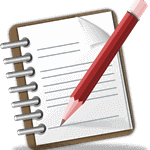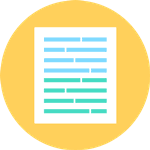 The theoretical framework stands as the pillar guiding scholars and students through the new ideas of discovery. It is the intellectual scaffold that supports the entire process of a research project, providing a structured and logical framework within which to explore and interpret the world's complexities. Crafting a robust theoretical framework can be a challenge, often leaving even the most seasoned researchers feeling adrift. If you find yourself grappling with the difficulties of constructing this essential component of your research, our help is at hand. Research is a process into the unknown, a quest for answers that demands precision, clarity, and a solid intellectual footing. Your theoretical framework serves as the compass, helping you understand the complex ideas and concepts that underpin your study. It is the roadmap that defines the boundaries of your research, sets the stage for your hypotheses, and brightens the path toward meaningful conclusions. The challenges encountered when writing a theoretical framework can be as diverse as the research topics themselves. From defining the research problem with precision to formulating research questions and hypotheses that are both relevant and testable, each step demands careful consideration. The choice of appropriate research methods, data analysis techniques, and the interpretation of results all play a critical role in the research study. Our experts insist on meticulous attention to detail, including proper citations and references. Plagiarism is a dangerous pitfall that can mar even the most promising research studies. Mastering citation styles and creating comprehensive lists of references is essential. The structure and coherence of your theoretical framework can significantly impact the clarity and impact of your research. We ensure that your work is well-organized for a seamless flow, drawing connections between various concepts and theories, and enhancing the overall quality of your study. Let us explain why individuals often seek assistance with their research theoretical framework and how our experts can offer the guidance and support needed to handle these challenges successfully. We can help you change these complexities into a structured and empowering academic experience.
The theoretical framework stands as the pillar guiding scholars and students through the new ideas of discovery. It is the intellectual scaffold that supports the entire process of a research project, providing a structured and logical framework within which to explore and interpret the world's complexities. Crafting a robust theoretical framework can be a challenge, often leaving even the most seasoned researchers feeling adrift. If you find yourself grappling with the difficulties of constructing this essential component of your research, our help is at hand. Research is a process into the unknown, a quest for answers that demands precision, clarity, and a solid intellectual footing. Your theoretical framework serves as the compass, helping you understand the complex ideas and concepts that underpin your study. It is the roadmap that defines the boundaries of your research, sets the stage for your hypotheses, and brightens the path toward meaningful conclusions. The challenges encountered when writing a theoretical framework can be as diverse as the research topics themselves. From defining the research problem with precision to formulating research questions and hypotheses that are both relevant and testable, each step demands careful consideration. The choice of appropriate research methods, data analysis techniques, and the interpretation of results all play a critical role in the research study. Our experts insist on meticulous attention to detail, including proper citations and references. Plagiarism is a dangerous pitfall that can mar even the most promising research studies. Mastering citation styles and creating comprehensive lists of references is essential. The structure and coherence of your theoretical framework can significantly impact the clarity and impact of your research. We ensure that your work is well-organized for a seamless flow, drawing connections between various concepts and theories, and enhancing the overall quality of your study. Let us explain why individuals often seek assistance with their research theoretical framework and how our experts can offer the guidance and support needed to handle these challenges successfully. We can help you change these complexities into a structured and empowering academic experience.
Reasons for Seeking Help with Writing Your Research Theoretical Framework;
- If You Are Struggling to Define the Research Problem: Without a well-defined problem, your research can lack direction and focus; hence, our expert tutors assist you in clarifying and refining your research problem, ensuring that it aligns perfectly with your research objectives. We provide step-by-step guidance and practical examples to help you articulate your research problem effectively.
- If You Are Unsure About the Research Questions or Hypotheses: Crafting research queries and assumptions that are clear, concise, and aligned with your research problem is essential. However, many individuals find themselves unsure about how to formulate these crucial elements of their study. We offer theoretical framework writing help to guide you through the process of creating research inquiries and hypotheses that are tailored to your research topic as well as ensure that they are testable, relevant, and logically connected to your theoretical framework.
- In Case You Are Uncertain About the Appropriate Research Methods: Different studies require different methodologies, and making the wrong choice can compromise the validity and reliability of your research. Our tutors are well-versed in various research methods and can provide you with expert advice on choosing the most suitable ones for your study by explaining the pros and cons of each method, helping you make an informed decision.
- When You Are Struggling to Interpret the Results of the Study: Misinterpretation can lead to flawed conclusions and undermine the overall quality of your research. If you find yourself struggling with data analysis and interpretation, our experts can provide you with comprehensive guidance to assist you in understanding statistical tools, conducting meaningful data analysis, and drawing valid conclusions based on your study's results.
- When You Need to Ensure Proper Citations and References: Properly citing your work is a crucial aspect of academic writing, and failing to do so can result in plagiarism and academic misconduct. Our services include guidance on citation styles such as APA, MLA, and Chicago, ensuring that you adhere to the specific requirements of your institution. We'll help you create a well-organized bibliography that showcases your thorough research.
- If You Seek Clarity and Coherence in Your Theoretical Framework: A great theoretical framework should provide a clear and coherent overview of the concepts, theories, and models relevant to your study. If you struggle with organizing your theoretical framework or making it flow seamlessly, our tutors can help. We will provide you with templates and strategies for structuring your framework effectively, ensuring that it enhances the overall quality of your research.
The importance of seeking help with writing your research theoretical framework is prominent. It is the bedrock upon which your entire research project rests, guiding your efforts from the initial problem formulation to the final interpretation of results. Our theoretical framework tutoring services offer invaluable support in addressing the common hurdles that researchers encounter during this process. Whether you are grappling with defining the research problem, formulating clear research questions, selecting appropriate research methods, interpreting complex results, managing citations, or structuring your theoretical framework for maximum impact, our experts are here to assist you every step of the way. With their guidance, you can enhance the clarity, coherence, and overall quality of your theoretical framework, thereby bolstering the credibility and relevance of your research. Don't let these challenges hinder your academic or scientific progress. Let us help you build a strong theoretical foundation for your research study, paving the way for success in your academic or professional research.
How to Write a Theoretical Framework – Professional Guidance
 Developing a speculative framework is an essential aspect of academic and research-oriented studies. It serves as the intellectual backbone upon which a paper or project is constructed, providing a structured framework for understanding, analyzing, and interpreting findings. This critical element can be a hectic prospect for many, particularly those new to the field of academia or research. With our guidance and a suitable approach, crafting a robust theoretical framework becomes a manageable and even enlightening task. So, what precisely is a theoretical framework? At its core, it represents a compilation of key concepts, theories, and models that are relevant to the research topic at hand. These elements form the conceptual structure that guides the study, offering a lens through which to view complex phenomena and generate hypotheses. Think of it as the map that directs your research journey, helping you comprehend the complex ideology of your subject matter. Starting the process of constructing a theoretical framework can be an arcane work of effort. The question of how to begin often looms large. Our expert guidance can provide invaluable insights into this elaborate process. Understanding the importance of reviewing existing literature, identifying relevant theories, and pinpointing knowledge gaps are just some of the initial steps in this journey. By looking into these crucial elements, you lay the foundation for a well-structured and robust framework that not only defines the scope of your study but also clarifies its purpose. A sound theoretical framework is integral to the credibility of your research as it demonstrates a deep understanding of the field and helps you build upon the work of others, contributing to the existing body of knowledge. As you explore further, the theoretical framework evolves with your insights and data, adapting to ensure it remains a steadfast guide throughout your research journey. Our theoretical framework writers will help you look into suitable approaches, offer expert guidance, and clarify fundamental concepts that shape this critical aspect of academic and research writing. With a clear understanding of its importance and the right tools at your disposal, you can write your theoretical framework with confidence and purpose.
Developing a speculative framework is an essential aspect of academic and research-oriented studies. It serves as the intellectual backbone upon which a paper or project is constructed, providing a structured framework for understanding, analyzing, and interpreting findings. This critical element can be a hectic prospect for many, particularly those new to the field of academia or research. With our guidance and a suitable approach, crafting a robust theoretical framework becomes a manageable and even enlightening task. So, what precisely is a theoretical framework? At its core, it represents a compilation of key concepts, theories, and models that are relevant to the research topic at hand. These elements form the conceptual structure that guides the study, offering a lens through which to view complex phenomena and generate hypotheses. Think of it as the map that directs your research journey, helping you comprehend the complex ideology of your subject matter. Starting the process of constructing a theoretical framework can be an arcane work of effort. The question of how to begin often looms large. Our expert guidance can provide invaluable insights into this elaborate process. Understanding the importance of reviewing existing literature, identifying relevant theories, and pinpointing knowledge gaps are just some of the initial steps in this journey. By looking into these crucial elements, you lay the foundation for a well-structured and robust framework that not only defines the scope of your study but also clarifies its purpose. A sound theoretical framework is integral to the credibility of your research as it demonstrates a deep understanding of the field and helps you build upon the work of others, contributing to the existing body of knowledge. As you explore further, the theoretical framework evolves with your insights and data, adapting to ensure it remains a steadfast guide throughout your research journey. Our theoretical framework writers will help you look into suitable approaches, offer expert guidance, and clarify fundamental concepts that shape this critical aspect of academic and research writing. With a clear understanding of its importance and the right tools at your disposal, you can write your theoretical framework with confidence and purpose.
The most suitable approach for writing a theoretical framework
- Start by identifying the key concepts: Identify the key concepts that will be central to your research, which should form the basis of your theoretical framework. Your framework should clearly define these concepts and how they relate to one another.
- Review relevant literature: Conduct a thorough review of relevant literature to identify existing theories and models related to your research topic, which will help you determine what has already been studied and what gaps in knowledge exist. Your theoretical framework should build upon existing theories while also highlighting areas where new research is needed.
- Consider your research questions: Think about how your theoretical framework will help you answer your research questions, as it should be designed to provide a clear understanding of the relationships between the key concepts you have identified. If you need assistance, you can consult us for guidance.
- Choose a theoretical perspective: Choose a theoretical perspective that aligns with your research questions and the key concepts you have identified to offer different insights into the same phenomenon. Your theoretical perspective should provide a framework for understanding the relationships between the key concepts you have identified.
- Consider the context of your study: This can include cultural, social, economic, or political factors that may impact your research, where your theoretical framework should consider how these contextual factors may influence the relationships between the key concepts you have identified.
- Define your research variables: Your framework should clearly define these variables and how they relate to one another, which will help you design your research methods and analysis.
- Develop hypotheses based on your theoretical framework: Your hypotheses should be testable and should guide your research methods and analysis as well as provide a basis for developing these hypotheses.
- Use diagrams or models to represent your theoretical framework: Use illustrations to visually represent your framework, which can help you and your readers better understand the relationships between the key concepts you have identified. Diagrams or models can also be useful when presenting your research findings.
- Revise and refine your theoretical framework: Review your theoretical framework as you conduct your research, since your theoretical framework should be flexible and adaptable as new information emerges. To ensure that your framework accurately reflects your research findings, you can consult someone who knows how to write a theoretical framework.
How Do You Start a Theoretical Framework? Expert Guidance
- Identify the research questions: The first step in developing a theoretical framework is to identify the research questions that you will be exploring in your project so as to determine the key concepts and theories that will be most relevant to your research.
- Conduct a literature review: This will help you to identify the key theories and ideas that have already been explored in your field and will provide a foundation for developing your own theoretical framework.
- Determine the key concepts and theories: Identify the main ideas and approaches that will be most relevant to your research in order to form the basis of your theoretical framework.
- Develop a conceptual model: Using the key concepts and theories you have identified, develop a conceptual model that outlines the relationships between the different concepts and how they relate to your research questions.
- Review your work: It's important to rectify it based on feedback from your supervisor or peers to help ensure that your framework is robust and well-structured. If you need assistance with writing a well-structured theoretical framework, you can seek help from a proficient literature review writing assistant.
What is a theoretical framework in paper or project writing?
A theoretical framework is the conceptual foundation that certifies a paper or project. It serves as a stand upon which your research or work is constructed, providing a structure for understanding, analyzing, and interpreting your findings. Think of it as the intellectual framework that guides your investigation. At its core, a theoretical framework is a collection of key concepts, theories, and models that are relevant to your research topic. These concepts provide a lens through which you can examine your subject matter, helping you make sense of complex phenomena and generate hypotheses; it's the roadmap that guides your inquiry. The framework plays a critical role in defining the scope of your study and clarifying its purpose. It also helps you identify gaps in existing knowledge and determine how your work contributes to the field. By anchoring your research in established theories or models, you provide a sense of continuity and build upon the work of others. A great framework enhances the credibility of your research as it demonstrates that you've thoroughly reviewed the literature and understand the relevant concepts, which in turn, strengthens the validity of your findings and conclusions. It's important to note that a theoretical framework isn't static; it can evolve as your research progresses. You might refine or expand your framework based on new insights or data; thus, flexibility is key to ensuring that your framework remains a robust tool for guiding your work. This framework is the intellectual layout that gives structure and coherence to your paper or project. It provides a conceptual roadmap for your research study, aiding in the development of hypotheses, the interpretation of data, and the creation of meaningful conclusions. It's the framework that allows your work to stand firmly within the broader context of academic knowledge.
Understanding how a theoretical framework is written is essential for any academic or research study. It serves as the backbone of your work, providing a structured approach to analyzing and interpreting data. A suitable approach to a great theoretical framework involves a thorough review of existing literature, identifying key concepts, theories, and models relevant to your topic, and integrating them with the help of a cohesive theoretical framework outline. This process requires a deep understanding of your subject matter and the ability to connect it to broader theoretical perspectives. Starting a theoretical framework involves defining your research question and objectives, as well as outlining the scope of your study. It's about setting the boundaries within which your framework will operate, ensuring that it remains focused and relevant. Our expert guidance and a clear understanding of the specific requirements of your discipline are invaluable in this process. A theoretical framework is an intellectual roadmap that guides your research or project, lending structure and credibility to your work. It enables you to contextualize your findings within the broader body of knowledge, contributing to the advancement of your field. Mastering the art of drafting a theoretical framework is a fundamental skill for researchers and scholars alike.











 Does your work Require Rewriting Help?
Does your work Require Rewriting Help?